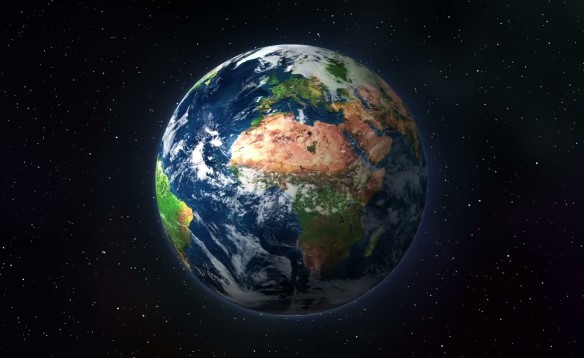By Jonna Marcaida Calagui, | January 30, 2017

The Earth’s unit of time is changing little by little due to the effect of the Moon’s gravitational pull. (YouTube)
Studies show that the Moon's gravitational force is the reason why the Earth's rotation is slowing down. With this happening, the regular 24-hour day on Earth is likely to stretch out and become 25 hours. But while this is possible, waiting for the day when one day is equivalent to 25 hours might take a very long time - like a hundred million years and more.
Like Us on Facebook
Earth's rotation is slowing down
According to the Guardian, astronomers found out last year that two milliseconds are added to Earth's day for every century. The discovery was made when astronomers compared celestial records from almost 3,000 years ago showing the changes in the Earth's rotation that may result in a 25-hour day in the distant future. However, the study also found out that this will only become possible after two more million centuries.
What the research revealed
The United Kingdom's Nautical Almanac Office and Durham University researchers teamed up and gathered historical data of celestial events including eclipses from 720BC until 2015. The ancient data records came in from Babylonian clay tablets, ancient Greek texts, scripts from China as well as data taken from Arab dominions and medieval Europe. Using an advanced computer model, the researchers compared all the historical records to see if the Earth's rotation remained constant during all past events that occurred. The results were crude but what is obvious from it is that there is a consistent discrepancy with the Earth's state of rotation from almost 3,000 years ago up to now.
The 25-hour day is going to be a long wait
Forbes also asked the question of how long should people wait for the 25-hour day. To make everything easier, they made a calculation of how long it will take for the 25-hour day to happen. The point of reference is the additional two milliseconds every century. By calculations, it will take 50,000 years to add just one second. Since an entire hour has 3,600 seconds, that means multiplying both figures. The result? Humanity would have to wait 180 million years to experience a day with an extra hour.
-
Use of Coronavirus Pandemic Drones Raises Privacy Concerns: Drones Spread Fear, Local Officials Say

-
Coronavirus Hampers The Delivery Of Lockheed Martin F-35 Stealth Fighters For 2020

-
Instagram Speeds Up Plans to Add Account Memorialization Feature Due to COVID-19 Deaths

-
NASA: Perseverance Plans to Bring 'Mars Rock' to Earth in 2031

-
600 Dead And 3,000 In The Hospital as Iranians Believed Drinking High-Concentrations of Alcohol Can Cure The Coronavirus

-
600 Dead And 3,000 In The Hospital as Iranians Believed Drinking High-Concentrations of Alcohol Can Cure The Coronavirus

-
COVID-19: Doctors, Nurses Use Virtual Reality to Learn New Skills in Treating Coronavirus Patients










